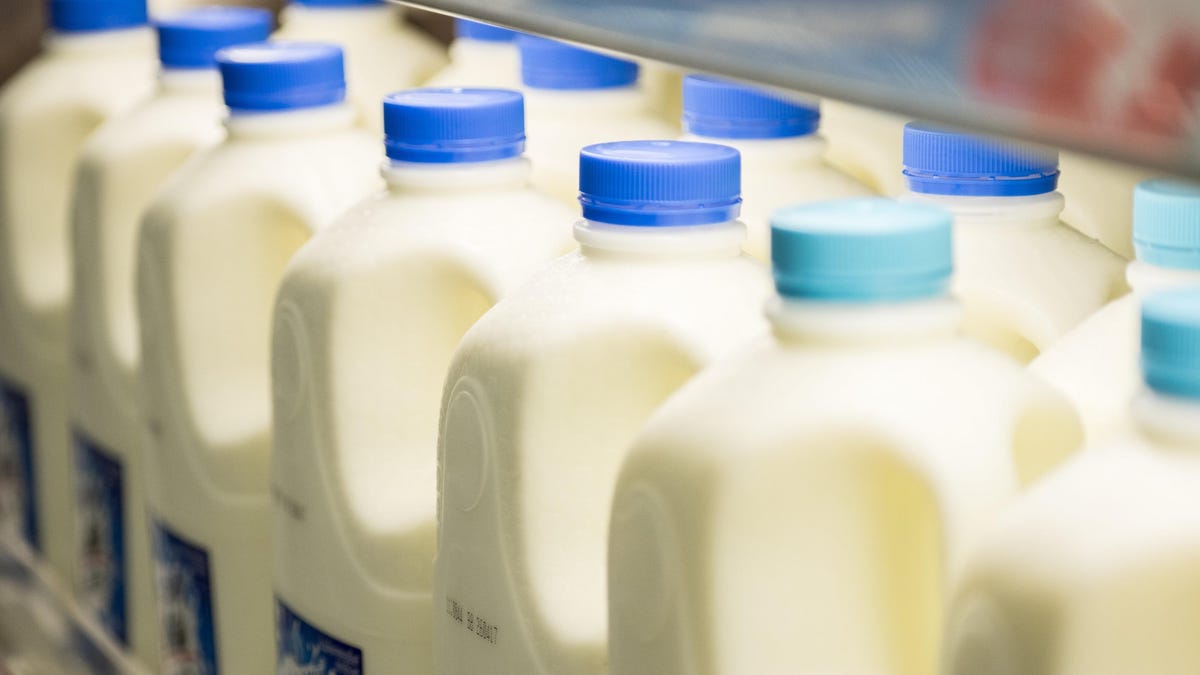Bird Flu in Dairy Cows: Safety of Food Supply Confirmed
The ongoing threat of bird flu poses significant public health concerns, particularly when it comes to our food supply. However, recent tests conducted by the Food and Drug Administration (FDA) and the U.S. Department of Agriculture have provided some reassuring insights into the safety of our dairy products.
Pasteurization Effectiveness
According to the FDA and USDA, examinations of pasteurized milk and ground beef samples have yielded no live H5N1, a strain of the avian flu virus. These results suggest that pasteurization is an effective method for neutralizing the virus in milk. However, the risk of consuming raw milk that may be contaminated with the virus still remains.
In recent months, highly pathogenic H5N1 outbreaks have affected numerous dairy farms in nine states, dating back to late 2023. While cows infected with these strains have not shown severe illness, symptoms such as reduced milk production, discolored milk, and decreased appetite have been observed. Additionally, there have been reports of fatal cases of H5N1 in cats linked to these farm outbreaks, along with one nonfatal human case.
Test Findings
In late April, the FDA identified genetic material from H5N1 strains in store-bought pasteurized milk samples. Further testing confirmed the presence of the virus, although it could not verify the existence of live virus. Subsequent “gold standard” testing involving egg inoculation failed to detect live virus in the samples.
The FDA has since conducted extensive testing on various dairy products from multiple states, including sour cream and cottage cheese. These tests have provided reassurance that the commercial milk supply is safe from the bird flu virus.
Meat Supply Evaluation
Similarly, the USDA examined ground beef samples from states affected by dairy farm outbreaks and found no traces of H5N1. PCR testing of retail powdered infant formula and powdered milk products has also returned negative results, further supporting the safety of the meat supply.
Experts anticipated that pasteurization would effectively deactivate the avian flu virus, as it has done with other infectious agents. Although the recent test outcomes were as expected, the widespread prevalence of bird flu in dairy cows underscores the importance of ongoing vigilance and monitoring.
Future Testing and Concerns
While pasteurized milk appears to be safe for consumption, the safety of raw milk remains in question. Raw milk has been known to harbor various pathogens, including the H5N1 virus, which poses risks to consumers.
Considering the potential threats posed by raw milk, the FDA plans to expand its testing to assess the presence of live virus in these products, providing valuable insights into the extent of the outbreak and potential risks associated with raw milk consumption.
Overall, the recent findings offer some reassurance regarding the safety of our food supply in relation to the bird flu virus. However, continued monitoring and proactive measures are necessary to mitigate future risks and safeguard public health.
Image/Photo credit: source url





